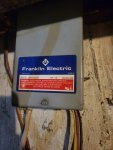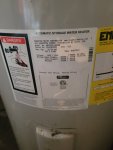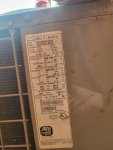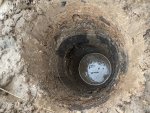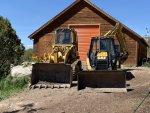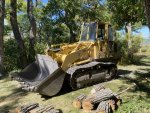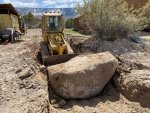@MatthewWBailey On your earlier post with the solar array going in, that's a heck of a hole. I was looking at the hole picture, thinking that looks like a big chunk of granite, thinking "how the heck", and then I saw your second photo. That's one of the largest diamond core bits I have seen on an electric portable unit. I like the idea of welding a platform to your FEL. Nice job! I had only seen rock coring done with hydraulic augers or coring rigs.
While I think that individual usage, and tolerance for power quality variation are definitely "YMMV", can I pass on a bit of real world experience?
I have intermittently used portable backup generators to run a pretty modern (electronically, at least) house for close to 20 years. All of my generators get checked for voltage and frequency before the initial use, adjusted if necessary/possible, and regularly checked thereafter while in use. I have never seen more than a +/- 1% variation of frequency (59.5-61.5Hz). While running the whole house, I have seen an old diode/capacitor regulated 4kW model drop 5% in voltage when a 3/4HP booster pump kicked on. My 5kW and up have held up better, in part, I think due to more modern regulator systems.
I agree that many folks install generators with a high capacity to be able to not make any adjustment of their daily living during an outage. I understand that. For example, have an elderly neighbor with a handful of AC mini splits that are needed for health reasons, so the plan is that all the AC units might be running, resulting in a big generator. I would say that if the owner is able to make some adjustments in daily living, I think that it is easily possible to run a home on backup power with a much smaller generator, with savings in fuel, and improvements in generator lifetime.
One thing I would flag for propane generators, in particular, is double checking how much propane might be needed for an expected outage, and in particular how much might be needed in cold weather when the tank size and residual volume/fill will greatly reduce the amount of propane available for a generator. Generac and others have propane tables in their installation instructions, with the limits on drawdown at various temperature and loads. Natural gas is also not without its supply limitations as many Texans have found out over the years. In the end, I think it comes down to what any one persons particular needs are.
All the best,
2Pbfeet


